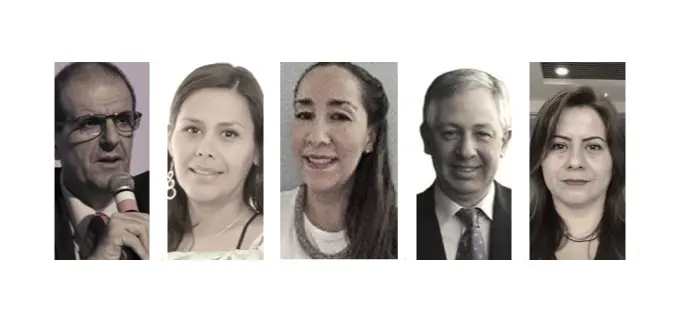The Commission that Guarantees the Transparency of LACNIC’s Election Processes
January 28, 2021

The past year was marked by the COVID-19 pandemic and LACNIC’s Electoral Commission faced a two-fold challenge: holding periodic virtual meetings despite the three different time zones where its members are located and overseeing six different LACNIC community and bylaws-mandated election processes.
This increased workload did not keep Marcelo Corradini (Brazil), Carolina Cofré Fernández (Chile), Horacio Tedesco (Argentina), Nancy Julia Cordova Gamarra (Peru), and Vivian Valverde (Costa Rica) from successfully carrying out the work of the Electoral Commission, which is responsible for monitoring and overseeing electoral processes.
LACNIC Member spoke with the members of the Commission and asked them to share some details of their work during this very particular year.
What major challenges did LACNIC’s Electoral Commission face last year?
Because of the pandemic, last year we were unable to meet in person as we did in 2019. Meeting face to face allowed us multiple benefits, such as sharing our experiences as well as adjusting and coordinating our work methods and points of view with LACNIC staff members. During the pandemic, one of our challenges was to coordinate and hold virtual meetings, as remote work increased significantly all over the world and work days were extended beyond normal hours.
Considering that 2020 was the first year during which the Commission audited community processes, what challenges did you encounter?
Learning all about the new modalities for the ASO and RC elections was undoubtedly one of the challenges we faced. Nevertheless, we didn’t encounter any problems during the election of the chair, which was the first of the processes in which we were involved. The rules specified by the Board were followed and the procedure used was the same as for bylaws-mandated elections. This allowed us to obtain a very efficient result, as we were able to audit the process in the sense that candidates met the requirements, that the Board’s recommendations regarding electoral propaganda and mass messaging were followed, and that there no incompatibilities were found in the candidates.
(Free access, no subscription required)
What has the Commission’s work been like during the pandemic?
As a result of the pandemic, we had to coordinate additional meetings with the staff – with all the difficulties and challenges this implied as we mentioned earlier – to clarify doubts regarding the community elections. This could have been easily solved by meeting face to face with the staff.
How relevant is the Electoral Commission for LACNIC members and for the community in general? What are the prospects for the Commission’s work during 2021?